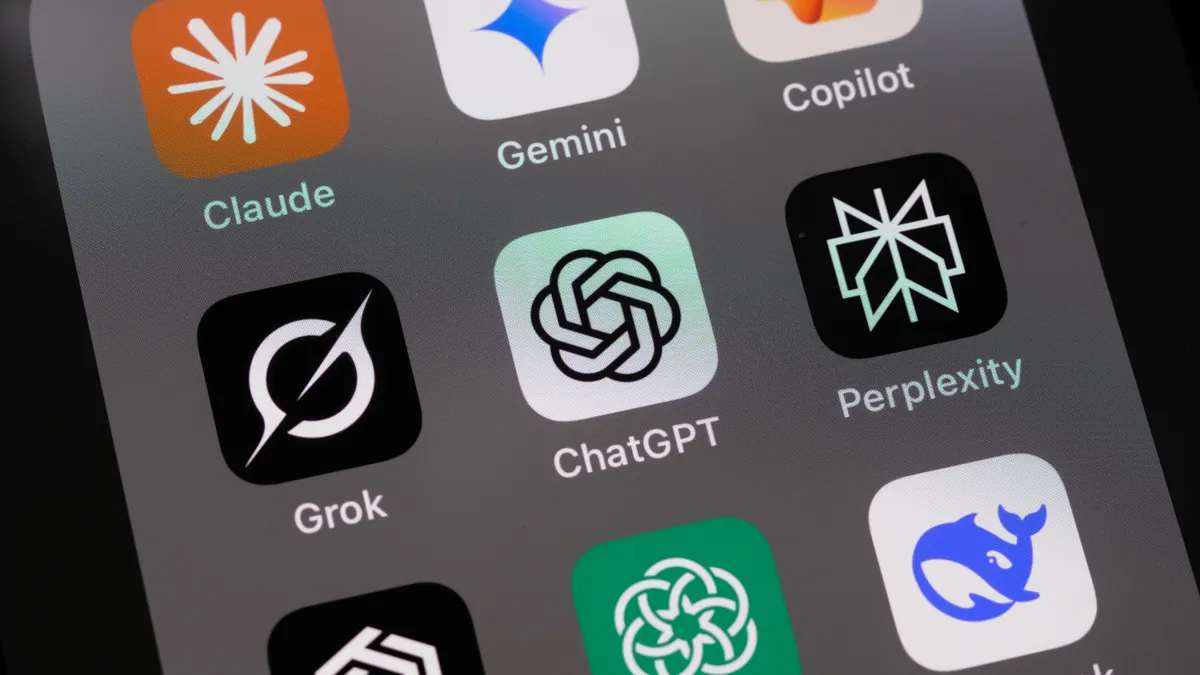Building on success in the software, cloud and AI spaces, Microsoft has transformed into an enterprise mainstay.
Analytics and AI capabilities are increasingly positioned as drivers of business innovation, but many organizations are still early on their path to robust and disciplined data practices.
Struggling with the talent, platforms and foundational investments to get these programs off the ground, an opening for vendors and providers is widening.
CIO Dive spoke with John "JG" Chirapurath, general manager of Azure data, blockchain and artificial intelligence, about how Microsoft is evolving with its customers data needs and what areas will be of focus this year.
This interview has been lightly edited for clarity and brevity.
CIO DIVE: Tell me about what you do.
JOHN CHIRAPURATH: I work on our data, analytics, blockchain and artificial intelligence events. And the first question I get when I say that is, folks ask me, "well why is all of this stuff related and how do you actually connect all of these things together?"
The easiest way to answer it is that data in fact is the foundation of everything that you want to do. Without data there is no analytics, and unless you've collected vast amounts of data, it's very hard to really employ machine learning and advanced AI techniques. So the logic is by putting it all together, you've got the ability to really connect the dots from how data is created, how it is managed, where it is utilized and eventually all the way to analytics and AI.
What customer pain points are you focusing on?
CHIRAPURATH: The number one thing I hear anytime I talk to our customers is that these customers are collecting more data than ever before. And this data is not just in the volume of the data that's being collected, but it is in the speed at which they are forced to collect it. And this data is varied.
Against this context, they understand that there is a lot of value that is locked up in this data, so the need to extract insights from this data is top of mind.
[Digital transformation] is really a mindset that we are trying to discuss with our customers.
The benefits of this word, of this phrase 'digital transformation,' comes down in four things: Our customers are seeking to transform their products better, optimize their operations, engage their customers better and [engage] their employees better.
And all of this really starts with data. The more data you collect, the more data you have to essentially drive insights on. And as you drive these insights, you can take action that improve these four pillars. That virtuous cycle, that digital feedback loop is what is at the heart of what you hear is digital transformation.
As data doubles and triples every year, at what point does an organization's system reach its limit? Where can things get out of control?
CHIRAPURATH: [Customers] find where they need to solve is across three dimensions.
The first is, they need systems and solutions that provide the best price performance for storing, for managing, for analyzing this data.
Independent benchmarks have revealed that we [Microsoft] are 14 times faster and we cost about 94% less than most of our other cloud providers out there. And this is vital, because you can't have exponentially growing costs every time you analyze a store of data.
The second thing that is going to be vital in this argument is essentially the whole trustworthiness of your solutions around security and privacy.
It's something we take really seriously because we see our customers going through it, and we also are focused on it because we operate in pretty much every geography in the world and we are subject to the same standards.
The third area that I would say is the accessibility of insights — this concept of insights for all. Everybody needs it. If you are somebody working inside the IT department of a company, you need the insights to run your infrastructure as efficiently as possible. If you're a business analyst at the same company, if you're a marketing analyst or a financial analyst, you need the same set of insights for you to do your work as perfectly as possible.
What is your roadmap for 2019?
CHIRAPURATH: For data, one of the things we are really going to focus on is to cast a wide net and meet our customers where they are.
The dogma and the orthodoxy of saying that thou shall only collect data in one kind of system is long gone. So we've evolved, and we are in fact the biggest proponents of things like open source technologies to help customers collect data in whatever system they so desire.
So one of the roadmaps we have here is to double down on that open source journey that we've begun on.
We began January off with a bang when we announced the acquisition of Citus Data. And Citus Data is one of the major contributors to an open source database technology called Postgres, and they have a fantastic community engagement angle, which we are obviously going to keep alive.
In analytics, it's really for us to continue the price performance game, the security game that we've embarked on. And it is really the only way to solve the volume, the velocity, the variability of data that customers see today. If we can't answer and we can't provide these solutions to extract analytics and insights at the best possible price performance, then we are doing our customers a disservice.
That moves us in the group that I'm part of. Everybody is focused on it, and we will lean into it some more.
Correction: A previous version of this article misstated independent benchmarks for Microsoft. The company was found to be 14 times faster.



















